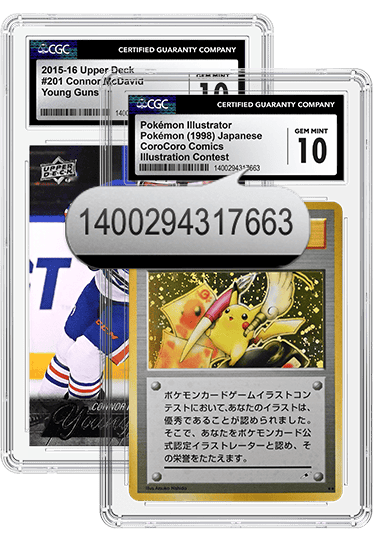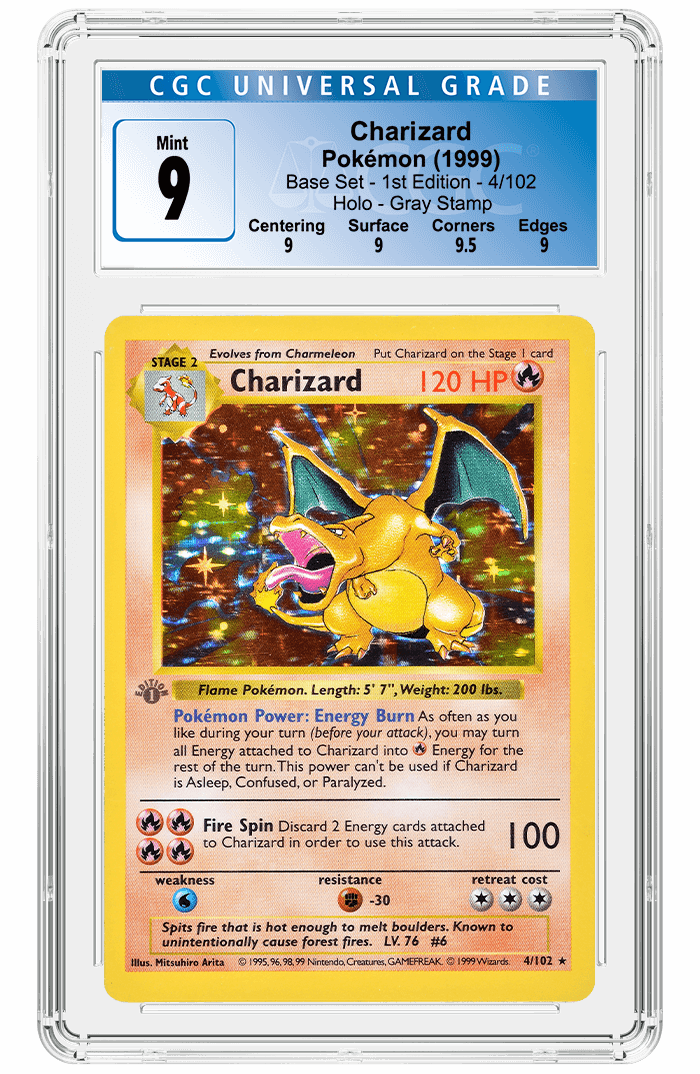Cal Ripken Jr. Rookie Card Market Guide
Posted on 11/30/2022
Calvin Edward Ripken Jr., known to most as Cal Ripken Jr., is a sporting legend who played 21 seasons of Major League Baseball. With a career that spanned over two decades, Ripken broke several league records. He was almost universally elected to the Hall of Fame in the first year of his eligibility as well.
Therefore, it makes sense why Ripken rookie cards are a popular choice amongst collectors. Our market guide will cover everything you need to know to start or finish your Ripken collection.
Who Is Cal Ripken Jr.?
Cal Ripken Jr. was born in Maryland, the son of Baltimore Orioles player and coach Cal Ripken Sr. Due to his father’s work commitments, the family was often on the move. Ripken grew up around baseball and started playing at a very young age, getting advice and coaching from his father and Minor League players. By age 3, it is said that Ripken knew he wanted to play baseball.
By the time Cal Ripken was in his junior year, he was named the MVP of Hartford County for his batting achievements and his role in getting the Aberdeen Eagles to become county champions. In 1978, the Baltimore Orioles drafted the teenager. Despite rumors, he was intentionally picked in the MLB Draft and not as a forfeited pick. As a result of the draft, Ripken went straight from high school to play professional baseball.
In 1981, Ripken got called up from the minors to the majors for the first time, shifting a few times between shortstop and third base. During the 1982 season, Ripken became one of the MLB's brightest young stars as he hit an impressive 28 home runs, earning him the American League Rookie of the Year Award and helped the Baltimore Orioles contend for the playoffs.
Ripken and his teammates continued their success the next season when they won the 1983 World Series against the Philadelphia Phillies. It was a quick start to Ripken's legendary career, but he'd never reach the pinnacle of the sport again.
It is arguably the period between 1991 and 1995 when the star power of Cal Ripken came into fruition. During this period, he earned numerous awards, including the Gold Glove Award and becoming the first shortstop in Major League history to hit 30 home runs and to have more than 200 hits.
One of his most famous moments came in 1995 as a game against the California Angels began. Ripken received a standing ovation from the crowd, both teams and even President Bill Clinton for achieving the most consecutive games played in league history (2,632). In doing so, he beat out a record held by New York Yankees icon Lou Gehrig for 56 years.
In 2001, Ripken announced his retirement, bringing an end to his astounding pro career. He'd finish his career as a 19-time All-Star, two-time AL MVP, two-time Gold Glove Award winner and eight-time Silver Slugger Award winner. In 2007, he was inducted into the Hall of Fame, cementing his place as one of the greatest players of his generation.
What Makes a Cal Ripken Jr. Rookie Card Valuable?
What makes a Cal Ripken Jr. rookie card stand out is very much going to be down to the quality of the card and its condition. During the '80s, there was a common problem in the trading card world: overproduction. As a result, for most of these rookie cards, there are tons available on the market. In terms of age, they’re also not considered old enough to be scarce.
However, the quality of these cards, due to the general wear and tear of lower-quality cardstock or printing issues (namely centering), can often mean many of these cards would not achieve a high-grade. The real value potential comes from cards in mint or near-mint condition, but these are few and far between. Similarly, the Topps Traded card was printed in far fewer numbers, so this helps it command a much higher potential value than the other rookie cards available on the market.
The Investment Potential of a Cal Ripken Jr. Rookie Card
At low grades, a Cal Ripken rookie card may not be the best option for investment purposes. When planning any purchase, research will help you make the best possible choice when deciding what you want to invest in. Make sure to pay attention to:
The player's talent and potential: How good a player is, what their career trajectory looks like and if they’re breaking records are all things to consider when looking into the investment potential of a particular player.
The player's marketability:Popularity is an important factor to consider. Does the player (or did they) draw in the crowds? If fans and collectors alike talk about this player a lot and seek their cards, it’s a good bet that they could be a good investment.
The player's position:Sometimes, the player’s position can factor into the investment potential of the card. Especially if the individual changes positions at some point in their career and is remembered for one over the other.
The scarcity of the cards:How rare are these cards? If they’re easy to find in fantastic condition, for example, they won’t attract such high values on the general market. A lot of the Cal Ripken cards are quite easy to find, but mint condition cards are much more challenging to locate.
The age of the player:A young player with a promising career could be a great long-term investment option, but it’s more of a gamble because anything could happen in the remainder of their career. Similarly, retired players could be a better short-term option (and may have longevity if they are considered particularly special).
The popularity of the sport:How popular is the sport, and how popular is it likely to remain? Both are important questions to ask, but it’s unlikely people will stop caring about baseball.
Your investment strategy:As well as research, think about strategy. Are you going for up-and-coming or sporting legends?
The Best Cal Ripken Jr. Rookie Cards
From his Major League Baseball career, there are four cards considered to be Cal Ripken rookie cards. While all four of them can command reasonable prices at the very top end of the market, only one of them is considered to be a stand-out option.
1982 Topps Traded #98T Cal Ripken Jr. ($20,101)
This is the most desirable of the four Cal Ripken rookie cards. Collectors debate whether this card is a genuine rookie card as it’s part of the Topps Traded series. However, Topps printed cards under this banner for any player from the Minor League and players who had been traded during the Major League season.
It’s generally preferred to the Base Series card because this one features a clean standalone image of Ripken. Due to the low-quality cardstock used, these cards often suffer from edge damage. Finding one in a high grade is difficult, making it more sought-after. At the top end of the market, this card has sold for over $20,000.
1982 Topps #21 Orioles Future Stars Bob Bonner/Cal Ripken/Jeff Schneider ($9,949)
Despite Ripken not being the only player on the card, this is still a highly desirable rookie card amongst collectors. Widely considered one of the better images used, it features a clean and appealing card design overall.
However, collectors and investors should be careful when considering this card since it often features printing errors, mainly regarding the centering of the images. Finding one that will achieve a high grade can be rare as a result. IF you do find one in excellent condition, it could be worth upwards of almost $10,000.
1982 Donruss #405 Cal Ripken Jr. ($3,700)
The Donruss card remains a popular choice when it comes to Cal Ripken rookie card collecting, likely due in part to a great portrait image of the young player.
The biggest issue with cards of this era is that many are available on the market. This means that the prices can be dramatically lower than listed above. The print quality on the card was also good, despite the occasional centering issue, meaning that higher-grade iterations are still available on the market. In mint condition, this 1982 Donruss #405 can sell for almost $4,000.
1982 Fleer #176 Cal Ripken Jr. ($3,500)
The 1982 Cal Ripken rookie card by Fleer is another victim of overprinting in the '80s, meaning there are plenty of them on the market. In addition, the design itself isn’t favored by collectors or investors. This is due to the image featuring a full-body image of Ripken in the infield with large amounts of background, and many believe Ripken to be slightly out of focus in the photo.
When you combine this with the bland card design, it’s easy to see why this rookie card is generally affordable in most conditions. It would have to be an exceptional mint condition card to reach the highest sales figures reported at $3,500. This can be tricky despite the volume of cards available, as printing issues can often prevent those high grades.
Where Can I Purchase Cal Ripken Jr. Rookie Cards
Cal Ripken Jr. rookie cards are not usually that difficult to come by, but if you’re looking to invest, finding ones in perfect condition can be a challenge. Always do your research and check the validity of the seller and their reputation to avoid potential scams. In addition to general auction sites like eBay and conventions where sporting memorabilia is likely to be sold, you can also try specialist auctions like:
- Robert Edward Auctions
- Sotheby's
- Pristine Auction
- Christie's
- EBTH
- Heritage Auctions
- PWCC
- Goldin
- Memory Lane
- SCP Auctions
- Invaluable
- Lelands
Conclusion
Cal Ripken Jr. is a highly desirable player to collect, and his rookie cards could be an excellent opportunity for investors and collectors alike. Although his cards don't command the same top prices as other Hall of Famers, if you plan the right strategy and opt for the best condition, Cal Ripken rookie cards can be a good choice.
With the card's condition being so critical here, it will be imperative to get it graded as quickly as possible to preserve its mint status. You can review this handy guide to learn more about the CSG grading scale.
Graded on the centering, corners, edges and surface, CSG will take the utmost care and attention when grading cards for collecting or investing purposes. You can find out more about this process on the CSG website.
Stay Informed
Want news like this delivered to your inbox once a month? Subscribe to the free CGC eNewsletter today!

